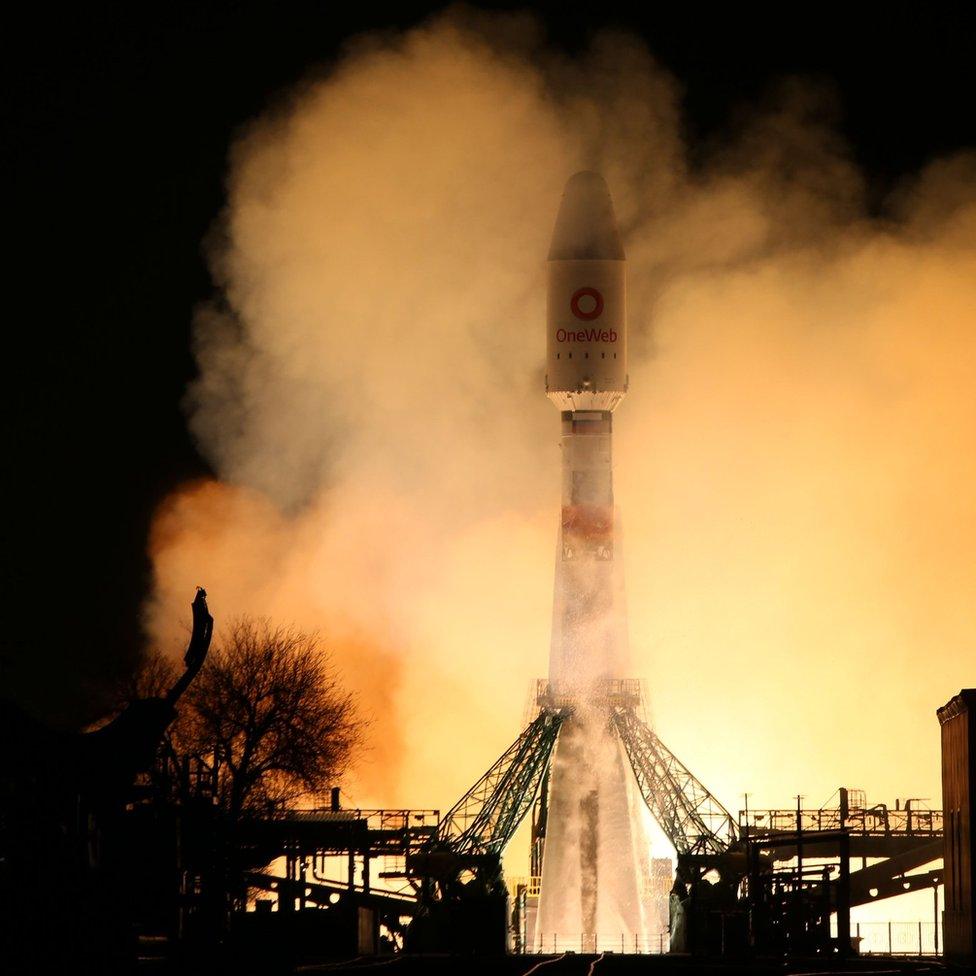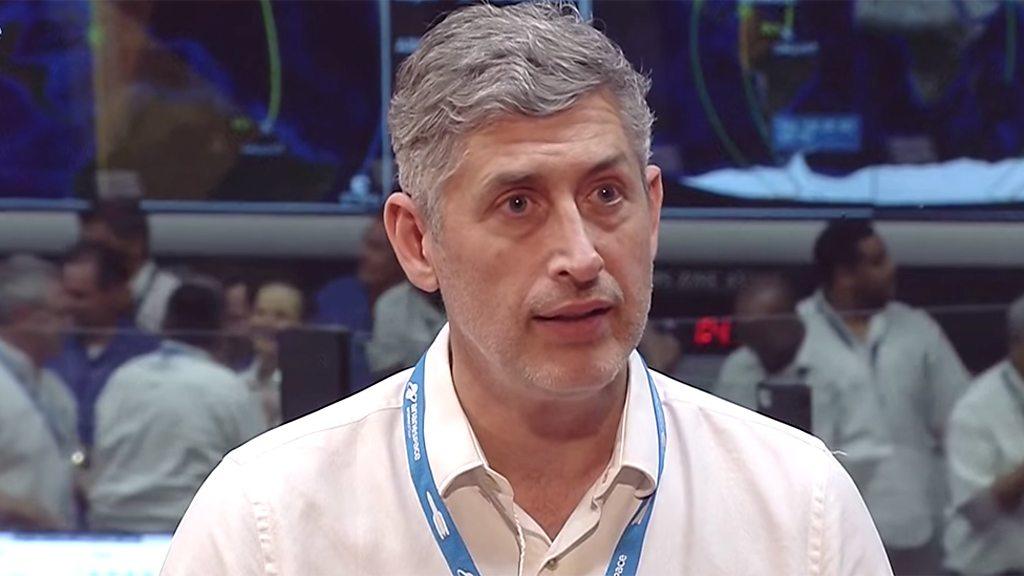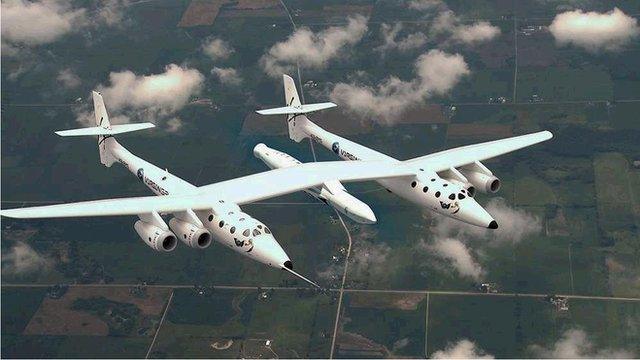OneWeb increases mega-constellation to 74 satellites
- Published

The Soyuz launched from the Baikonur Cosmodrome in Kazakhstan

The London-based start-up OneWeb launched another big batch of satellites on Saturday.
A Soyuz rocket lifted off from Baikonur, Kazakhstan, carrying 34 more spacecraft into orbit to continue the build-up of the firm's broadband internet constellation.
The mission took place despite the coronavirus pandemic, which has limited much space activity elsewhere.
It also comes amid rumours the firm may consider seeking bankruptcy protection.
A report by Bloomberg, external on Thursday said OneWeb was examining different options it could use to stave off the difficulties of a cash crunch.
A spokesperson wouldn't comment on those rumours, telling BBC News only that OneWeb was "focused 100% on launch".
The Soyuz rocket left the Kazakh spaceport right on schedule at 22:06 local time (17:06 GMT) on Saturday.
Its payload took the current size of the start-up's constellation to 74 satellites. Forty spacecraft were lofted in two previous launches.
The completed network aims to achieve an orbital configuration of approximately 650 satellites, with internet access becoming available first for some customers at northern latitudes, before eventually being offered globally.
OneWeb is in a race with a number of other companies that want to provide the same kind of service.
California entrepreneur Elon Musk is developing his Starlink constellation which envisages thousands of connected satellites. Likewise, Jeff Bezos, the boss of Amazon and the world's wealthiest individual, has proposed a system he calls Kuiper.
What they all are trying to do is very expensive. OneWeb has raised so far £2.6bn to fund its activities, but will need much more than this to fulfil all its plans.
It has a huge contracted launch campaign with European rocket operator Arianespace. Most of its Soyuz flights are supposed to be carried out from Baikonur, but a number are also expected to be conducted from the new Vostochny Cosmodrome in Russia's far east.
The stated OneWeb plan is to have its completed constellation in place by the end of the fourth quarter of 2021.
How achievable that is given the disruption created by the coronavirus pandemic remains to be seen. The aerospace industry, like much of the global economy, is having to implement contingency measures, including putting restrictions on the movement of equipment and personnel.
Arianespace, for example, has already suspended all launches from the European spaceport in Kourou, French Guiana.
After Saturday's launch, OneWeb accentuated the positives. In a statement issued by the start-up, CEO Adrian Steckel said: "In these unprecedented times following the global outbreak of Covid-19, people around the world find themselves trying to continue their lives and work online. We see the need for OneWeb, greater now more than ever before.
"High-quality connectivity is the lifeline to enabling people to work, continue their education, stay up to date on important healthcare information and stay meaningfully connected to one another. The crisis has demonstrated the imperative need for connectivity everywhere and has exposed urgent shortcomings in many organizations' connectivity capabilities. Our satellite network is poised to fill in many of these critical gaps in the global communications infrastructure."
- Published6 February 2020

- Published27 June 2017

- Published25 June 2015
